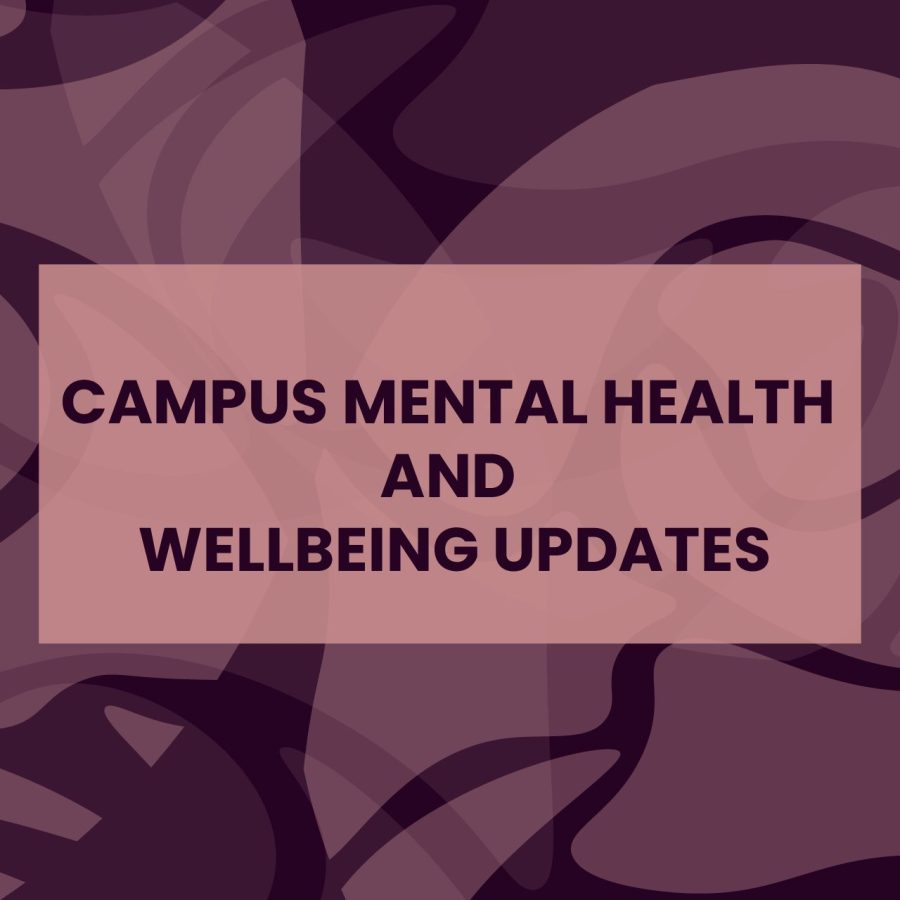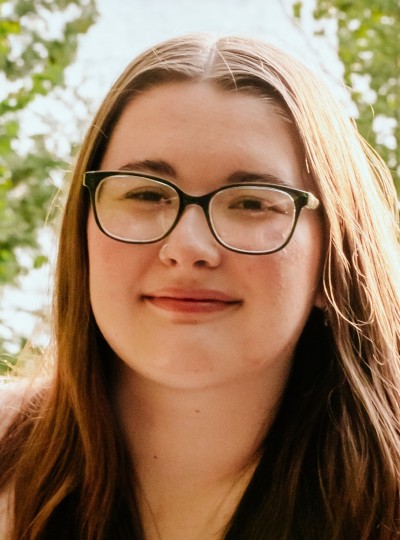NMU administration details plans for campus mental health, wellbeing
Since the death of a student, NMU has made structural and cultural changes to address wellbeing on campus
April 27, 2023
When an NMU student died by suicide last year, the fallout was immediate. In the days following April 3, 2022, a student was suspended for a survey about mental health on campus, there were calls for changes in how the school handled the wellbeing of its students, and eventually a consultant was hired to conduct a wellness report on NMU.
The resulting Haveman Report contained major recommendations to address the issue of mental health on campus and on June 1, 2022, Abigail Wyche was appointed as NMU’s Special Advisor for Campus Mental Health and Wellness. Using this report, along with feedback from faculty and students, Wyche and others have begun to reform NMU’s approach to its students’ wellbeing by creating new resources, shifting the university’s culture, hiring five new employees, and signing the Okanagan Charter to signify a commitment to mental health.
The death on campus was part of a national trend. Suicides among people ages 10-24 are up 60% since 2007, and depression and anxiety are at all-time highs for teens. With a mental health crisis among college age individuals, universities have had to determine how to respond.
Wyche, formerly the head of NMU’s social work department, said that universities are responsible for creating a culture that promotes the mental health of its students, as well as providing resources to those who are struggling in any way.
“We want to be a campus that supports our students’ wellbeing,” Wyche said.
According to the Haveman Report, this has not always been the case. Based on interviews with faculty and students, it found that, “No one felt NMU was doing as much as it should to support and sustain its students.”
Grace Rieger, a sophomore majoring in psychology, agrees.
“Since the suicide last year on campus it was very much scrambling to pick up the pieces,” Rieger said. “I think that really highlighted the flaws in the system that we had here and how we weren’t prioritizing that as a whole on campus.”
Structural Changes
One way NMU plans to prioritize its students’ mental health is hiring four new employees dedicated to their wellbeing: the school hired a physician’s assistant with psychiatric training experience in December to work in the health center and is in the process of hiring a case management services director and a counseling center director. The school has also committed to hiring a wellbeing promotions director this summer that will provide co-curricular programming for people on campus and teach skills that build ‘overall resiliency.’
The counseling center director position has been open for over three years, but in its first attempt to fill it the school did not find an appropriate candidate and the second search was interrupted by the pandemic. Wyche said a department head has always served as the counseling center director but there will now be a designated person in the role.
All of these employees will be working in the new Health and Wellness Center, which is scheduled to open in the fall of 2023 and will house NMU’s physical and mental health services.
NMU invited several students including MarLanaysia Rosser, the current president of Black Student Union, to meet with candidates for the case management services director position.
“Having that person reach out to you is like okay, now I feel like they’re actually listening and they’re hearing me,” Rosser said. “So that’s a good change.”
Rosser added that students of color don’t always feel welcome, safe or supported on campus, but that this could help counteract that.
“Having someone in the counseling center that looks like me would be helpful because I would feel more comfortable going to them,” Rosser said.
Wyche said that the school plans to add another full-time counselor, and that they want to be inclusive in filling this position and the others that remain open. Wyche added that it’s important to train counselors on responding to the experiences of people from different backgrounds.
Counseling Center
The Haveman report recommended that the ratio of counselors to students be 1 to 500 rather than the current ratio of 1 to 1500. The addition of one new counselor would make the ratio roughly 1 to 1300.
Students who seek counseling have reported long wait times, and Grace Rieger said her friends who sought services found it “hard to get in the door.”
Wyche said the last time she checked, the waiting list was 10 days, which is less than somebody might see with a provider in the community. The Counseling Center also offers emergency, same-day appointments and there is a Health Advocate Line where students can talk to licensed counselors 24/7.
Wyche also said there is no limit on how many times students can seek counseling, although the average number of sessions is between six and eight. However, not everyone who receives counseling has found it effective.
A student that wished to remain anonymous said that when she sought emergency counseling, her counselor used accusatory language and blamed her for some of her struggles.
“It was the opposite of helpful for me, so I wouldn’t be likely to go to NMU for stuff like that again,” she said.
Wyche said that she encourages students to reach out to her or the new counseling center director with that kind of feedback, as she wants them to have positive experiences.
“If students have experiences like that, we really want to hear about that, because it helps us understand patterns and those kinds of things so we can be responsive to that,” Wyche said.
The school has been hearing student feedback in surveys and one-on-one interviews, and Wyche said this two-way communication will be very important moving forward.
“We need to keep that conversation open so that as the environment changes, we’re constantly doing work that makes sense with what the student experience is,” Wyche said.
Commitment to Mental Health
Last week NMU became the seventeenth university to sign the Okanagan Charter, a document that calls for post-secondary schools to take a holistic approach to their students’ wellbeing and mental health.
“It’s a way for us to publicly demonstrate that we recognize that it takes work at all levels of the university if we’re really going to be effective at creating that culture,” Wyche said.
In order to create a culture that promotes students’ wellbeing, the school has provided free mental health first aid training to some of its employees, kicked off a training package with coaches and athletic staff and is committed to hosting more workshops and training sessions for students and employees in the future.
All of NMU’s action items to address mental health were included in its Interim Strategic Plan, and include measures such as adding Wellness Rooms, making Mental Health First Aid training available to any campus employee and expanding the Wildpups program.
The Future of Mental Health On Campus
Many of those changes are scheduled to take effect over 2023 and 2024, and Wyche said that the school will continue seeking information about the needs of its students and responding as necessary.
Rieger said that many of her friends are really struggling with mental health, and that some have even considered inpatient care. She hopes that the school will treat it as an issue that’s just as important as other achievement metrics, like job-placement rate.
“We’re heading in the right direction, but I still feel like we have a long way to go,” Rieger said.
Wyche said that although there will be challenges in the coming years, she feels strong support from the administration, and is excited to change the system and culture in a meaningful way.
“I am very confident in this moment that we are not just talking about this issue,” Wyche said. “We’re walking the walk.”



























